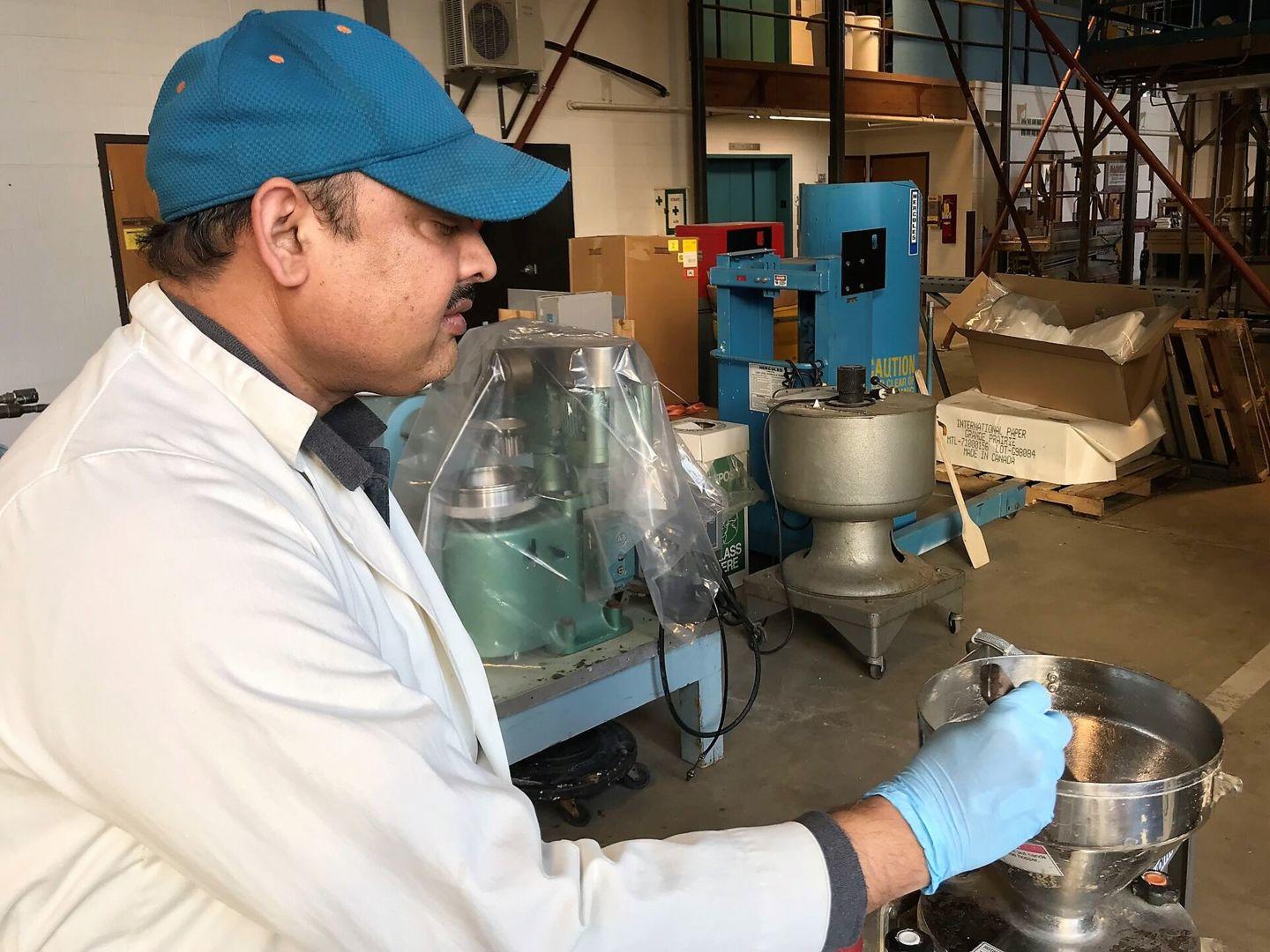An 1890 Capacity Building Grant is helping Fort Valley State University researcher Dr. Hari Singh implement nanotechnology in the classroom and in the field.
Nanotechnology involves seeing and controlling the smallest particles that make up products used in everyday life. As the global population continues to expand, research on this progressive science could help improve crop productivity and the environment.
“A nanometer is one billionth of a meter. When looking at materials at the nano size, the properties tend to change. It is easy to modify those properties for different purposes. There are millions of possibilities when applying nanotechnology to food, animals, drug delivery, diagnostics, therapeutics and various consumer product developments,” Singh said.
With no active research in nanotechnology at FVSU, the research associate professor of plant science recently participated in a two-month training at the U.S. Forest Products Laboratory in Madison, Wisconsin.
“I had the best experience working in Dr. Jun Young Zhu’s lab. I got first-hand training in producing ligonocellulosic nanomaterials and using an atomic force microscope for characterization of cellulose and lignin nanoparticles,” Singh said.
During his visit, Singh conducted research on two crops that he is growing at FVSU. He successfully extracted lignin and cellulose nanoparticles from napier grass and energy cane using cutting-edge techniques.
“My biggest achievement was learning the techniques to carry out such research,” he said.

Involved in bioenergy research for almost 10 years, Singh is hoping to use his training to help develop techniques for rural farmers to maximize biomass production on marginal lands.
“Despite the amount of work carried out and the progress made in the last two decades, commercial production of cellulosic biofuel at an economically competitive cost with fossil fuel remains a daunting challenge,” he said.
The research expert said one viable solution to make biofuel more cost competitive is to produce high value co-products from lignocellulosic biomass using the biorefinery concept. A biorefinery is a facility that integrates biomass conversion processes and equipment to produce fuels, power, heat and value-added chemicals from biomass. Singh said value-added co-products could bring some additional income to rural farmers involved in biomass production. He plans to collaborate with FVSU’s Cooperative Extension Program to offer an annual workshop to educate farmers and stakeholders on the benefits of biofuel co-products.
Singh’s research will involve finding ways to make cost competitive co-products from lignocellulosic biomass. “This will aid commercial production of cellulosic nanomaterial. Once we do that, we will collaborate with institutions and double capacity at Fort Valley State University in nanotechnology,” he said. Singh plans to provide a research program in cellulosic crops for plant-to-product capability.
In addition to helping rural farmers, Singh is training students on FVSU’s campus. He said according to Data USA, only 4.3 percent of underrepresented students are in the nanotechnology workforce. “There is a national need. I want to develop a capacity in nanotechnology at Fort Valley State University so that we can move forward with research and produce qualified students who can seek more opportunities in the nanotechnology field,” he said.
As a graduate faculty member, Singh established a nanotechnology laboratory at FVSU’s Agricultural Research Station, where he trains graduate, undergraduate and high school students. He aims to attract more youth to the program by challenging their imagination.
Biotechnology graduate students Quaneisha Woodford, 22, of Twiggs County, Georgia, and Jamaura Williams, 24, of Bonaire, Georgia, are both studying nanotechnology. Although there is a low number of minority students going into the nanotechnology field, Singh said the statistics are higher for females.
“Nanotechnology is an awesome field to pursue. You can do and learn so much. Most schools do not offer nanotechnology. To have it here is a privilege,” said Woodford, who plans to become a research scientist.
The U.S. Department of Agriculture’s (USDA) National Institute of Food and Agriculture (NIFA) awarded $99,034 (GEOX – 2014-02881) to Singh for his project, “Training for Value Added Utilization of Cellulosic Crops Using Nano and Biofuel Processing Technologies to Incorporate into Existing Instruction and Research.”
For more information about nanotechnology, contact Singh at (478) 822-1077 or singhh@fvsu.edu.

